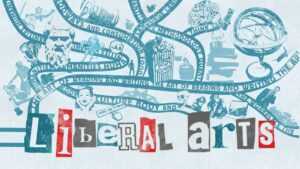With job opportunities scarce and college costs rising, the value of a liberal arts education has been put into question. Instead, degrees with words such as “management,” “technology,” and “systems” are seen as the best route for entry into the upper-middle class. These degrees will lead to homeownership, an SUV, a well-funded 401k, and most importantly job security. Basic wisdom concludes that a liberal arts degree, the antithesis of anything pre-professional, is just not a wise investment.
This could not be more wrong.
True, a liberal arts degree will not “train” you to perform a particular task. Rather, liberal arts and humanities coursework will help refine your broader skills including:
- Written communication
- Oral communication
- Research
Liberal arts coursework forces you to read, write, and articulate your ideas through speaking
and writing. You will be often dealing with topics you do not know that much about, so you will learn to effectively navigate your way through unfamiliar material. In this, you will learn to effectively and strategically craft arguments that get your points across concisely.
However, most important of all, liberal arts coursework will help you find your own voice and your own way of looking at the world. The importance of this cannot be understated, because you will be better-equipped to bring a well-developed and unique perspective to the workplace. Implicit in this is the ability to consider change over time. This theme is ubiquitous across the humanities and is certainly relevant in the rapidly changing professional world.
When it comes down to it your future employer is going to train you when you are hired on how to do your job. Yes, it is true that some professions do require a baseline of knowledge in an area (ie: it would be very difficult to get hired at an engineering firm with a classics degree), but that does not mean you can’t supplement your practical coursework with an English literature class.
Employers will always value those who can think a little bit differently, because when you think differently there is always opportunity (and where there is opportunity, there are profits to be turned).
But, when all else fails in trying to justify your comparative lit major to your parents, consider this: 38% of CEO’s majored in a liberal arts discipline and the earning potential of liberal arts majors outpaces that of their counterparts.*

